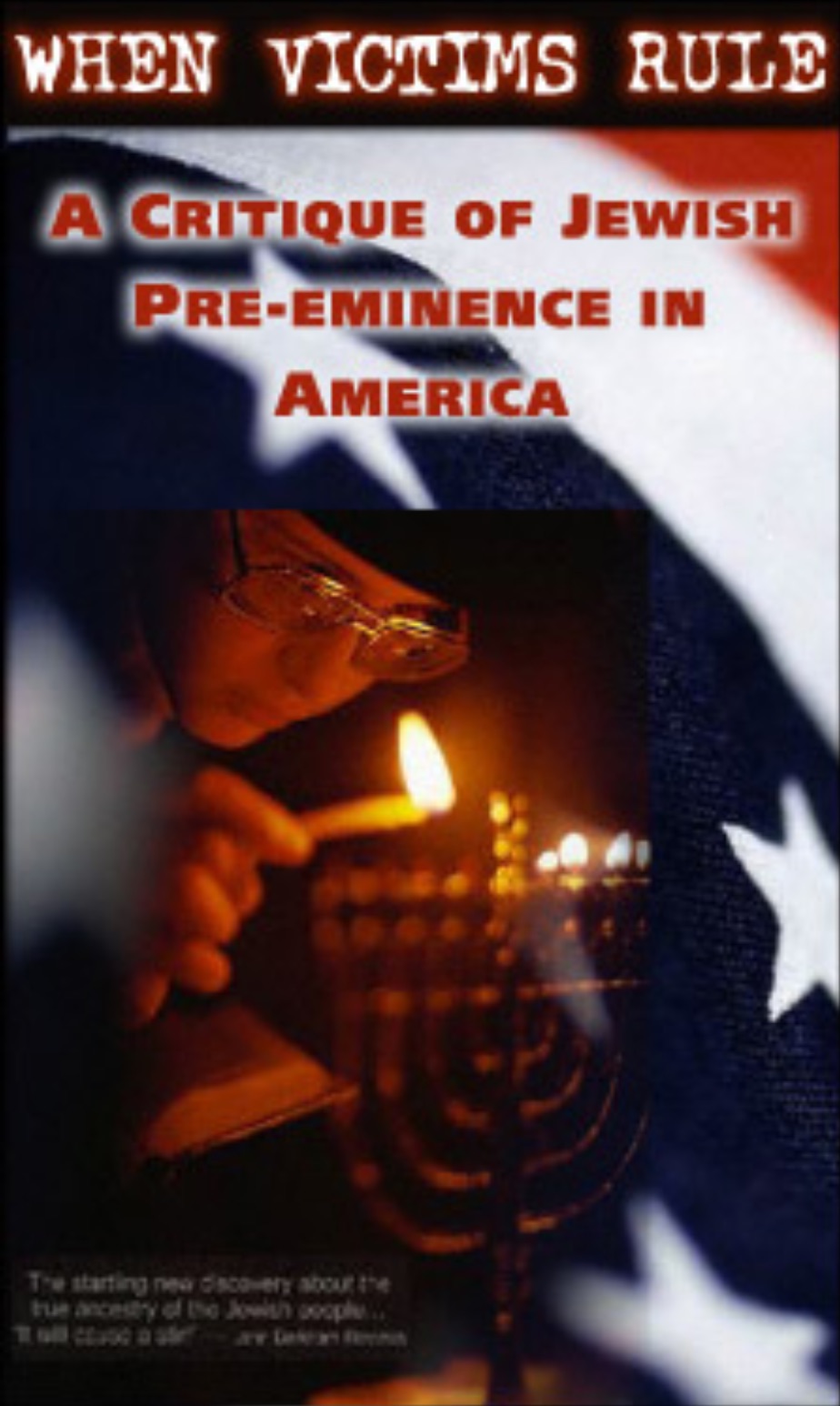Anonymous
When Victims Rule - A Critique Of Jewish Pre Eminence In America (2002)

From The Introduction
It is a daunting task to write a book, knowing full well that it swims counter to one of the strongest contemporary currents, and that it will automatically and categorically be rejected without investigation by the cultural, educational, and political machinations of modern western society, not for failings in its intellectual, scholarly, or moral rigor, but because its subject matter is publicly configured (by militantly enforced convention tended to by a powerful “special interest” group) to be beyond the pale of criticism. The subject matter in this volume is individuals, by virtue of their identity within an extremely politically active group, who are rendered completely free from the responsibility of such group association. It is further daunting, and disturbing, that such a volume is – by blanket dictate – condemned, even in its mere conception, to be an immoral, innately prejudicial, and even evil, enterprise.
We are all socialized in Western society to resist judging any individual by his or her ethnic/group association. It’s a noble ideal: Why prejudge anyone about anything? Let any individual be completely evaluated upon his or her respective merits. America is educationally, and legally, configured as a “tolerant” society, champion of a variety of multicultural perspectives. As reasonable as this may seem, however, there can be a profound double standard subliminally at work here. What about when the “individual we must not prejudge” is part of a subcommunity that itself prejudges all who are not part of that group’s boundaries of identity, a group that consistently acts by its self-protective, self- expansive biases? Is it “prejudicial” to criticize individuals who maintain – actively or passively – such group allegiance, within, and transcending, the American matrix? And is it not morally reasonable, and in fact morally necessary, to criticize any collectivity, to the degree it deviates, at core, from the inter- ethnic tolerant, and universalistic, ethic of the American sociopolitical frame- work? And what about when such a group can, alternately or collectively, self- configure as a racial, ethnic, religious, nationalist, and political organization? Does such a community merit categorical immunity from criticism?
Downloads and Links
- Download When Victims Rule - A Critique Of Jewish Pre Eminence In America (2002) by Anonymous - PDF (8.8 MB) - 2041 pages.
- https://archive.org/details/WhenVictimsRuleACritiqueOfJewishPreEminenceInAmerica
- Web search for the book by author and title
